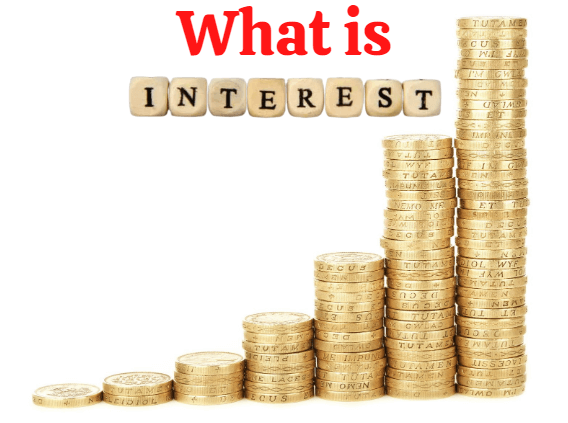What Is Interest Rate?
What Is Interest? And How Does Interest Work? Interest is a monetary fee for the privilege of borrowed money, usually expressed as an annual percentage rate (APR).
An Interest is the cost and benefit of a borrowing fund that accrues to those depositing money in a savings account.
Interest calculated as a percentage (or deposit) of the loan, which the borrower paid from time to time for the privilege of using their money.
The amount usually quoted as an annual rate, but interest can calculate for a period that is more than one year or less.
Interest can also refer to the amount of ownership of a stockholder in a company, usually expressed as a percentage. Different Types of Savings Accounts.
Interest refers to two related but very different concepts: either an amount the borrower pays to the bank for the cost of borrowing or an account holder receives in favor of leaving the money with the bank.
There are two basic types of interest: simple interest and compound interest.
- Simple interest or flat-rate interest is calculated as a percentage of the principal balance of a deposit or loan. How long a borrower or account holder goes to keep money in the bank without repaying the loan, the interest will still be calculated from the principal amount.
- Along with compound interest, Accrued interest is added to the principal balance. Think of it as interest on interest. What Is Interest? And How Does Interest Work?
How Does Interest Work?
The interest rate determines how much money the bank gives you to keep your money on deposit.
The decision to pay interest depends on what you get in return, and the decision to earn interest depends on the alternative options available to invest your money.
There are many different ways to calculate interest, and some methods are more beneficial to lenders.
When You borrowing, money, you’ll need to repay what you borrow. In addition, to compensate the lender for the risk of lending (and the inability to use the money elsewhere when you use it), you need to repay more than you borrow.
When lending, If you have additional funds available, you can lend it yourself or deposit money in a savings account, effectively lending it to the bank or investing the money.
In return, you will expect to earn interest. If you are not going to earn anything, you may lure to spend money instead, as there is little benefit to wait.
How To Earn Interest?
You earn interest when you deposit or deposit money in an interest-saving bank account such as a savings account or certificate of deposit (CD).
They use your money to loan to other customers and make other investments, and they give a portion of that revenue to you as interest.
From time to time, (every month or quarter, for example) the bank pays interest on your savings. You will see a transaction for interest payment, and you will see that your account balance has increased.
Interest earned on top of the interest you earned earlier is known as compound interest.
Best Ways to Earn Interests
1. Compounding Interest
If you can recreate the interest payments earned on a bond, then you can benefit from compound interest.
This means that you earn interest on both your original investment and prior interest payments. If you can use compounding, then over time, your total interest amount can be very high.
2. Laddering Bond Maturities
Bond laddering allows you to recoup income from bond maturities every few years.
Bonds are ladder-filled because they have different maturity dates. This strategy means that some bonds in the portfolio mature every few years. Income from each mature bond is reinvested at current interest rates.
3. Mutual Fund Breakpoints
If you invest in a mutual fund, you can pay a sales fee for investing in each fund. If you buy a bond mutual fund, you can use a breakpoint to increase your interest income.
A breakpoint is a quantity discount that you earn by purchasing different types of mutual funds within the same fund family. If you do your shopping within the same family, you can get a discount on any sales fees.
4. Online Savings Accounts
You may be able to increase the interest you earn by using an online savings account.
The online business model does not require physical bank locations. Because these institutions have low fixed costs, they can offer higher savings rates and lower minimum required balances.
5. Other Banking Relationships
If you have a business relationship with the bank, you may be happy to negotiate a higher interest rate on your personal checking account or your personal savings account.
If you have accounts in several different banks, a banker may offer a higher interest rate if all the balance in your bank runs.
READ ALSO: What Is Net Worth And How to Calculate Your Net Worth









